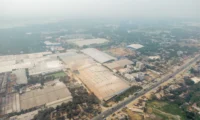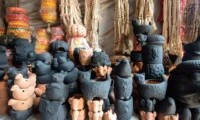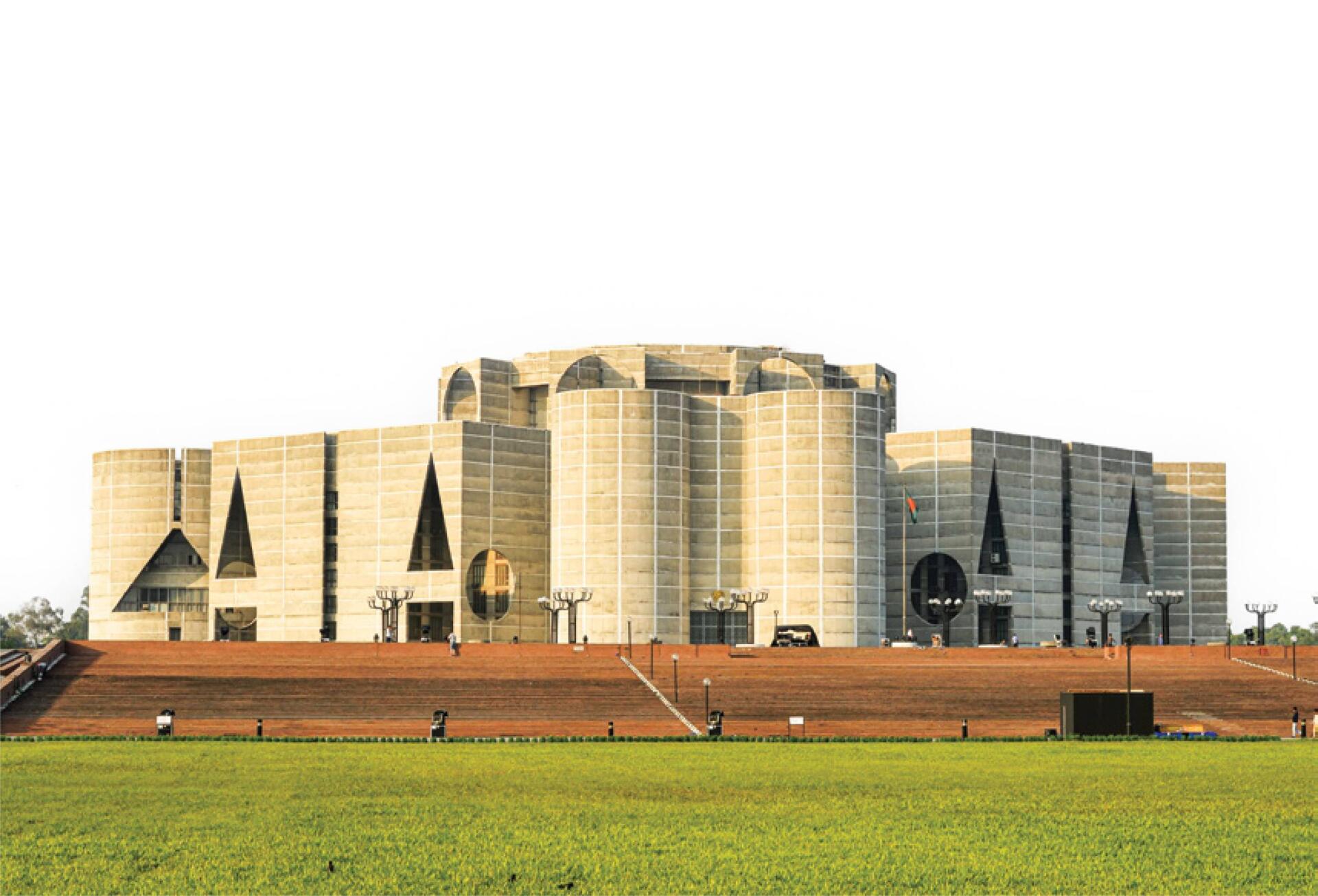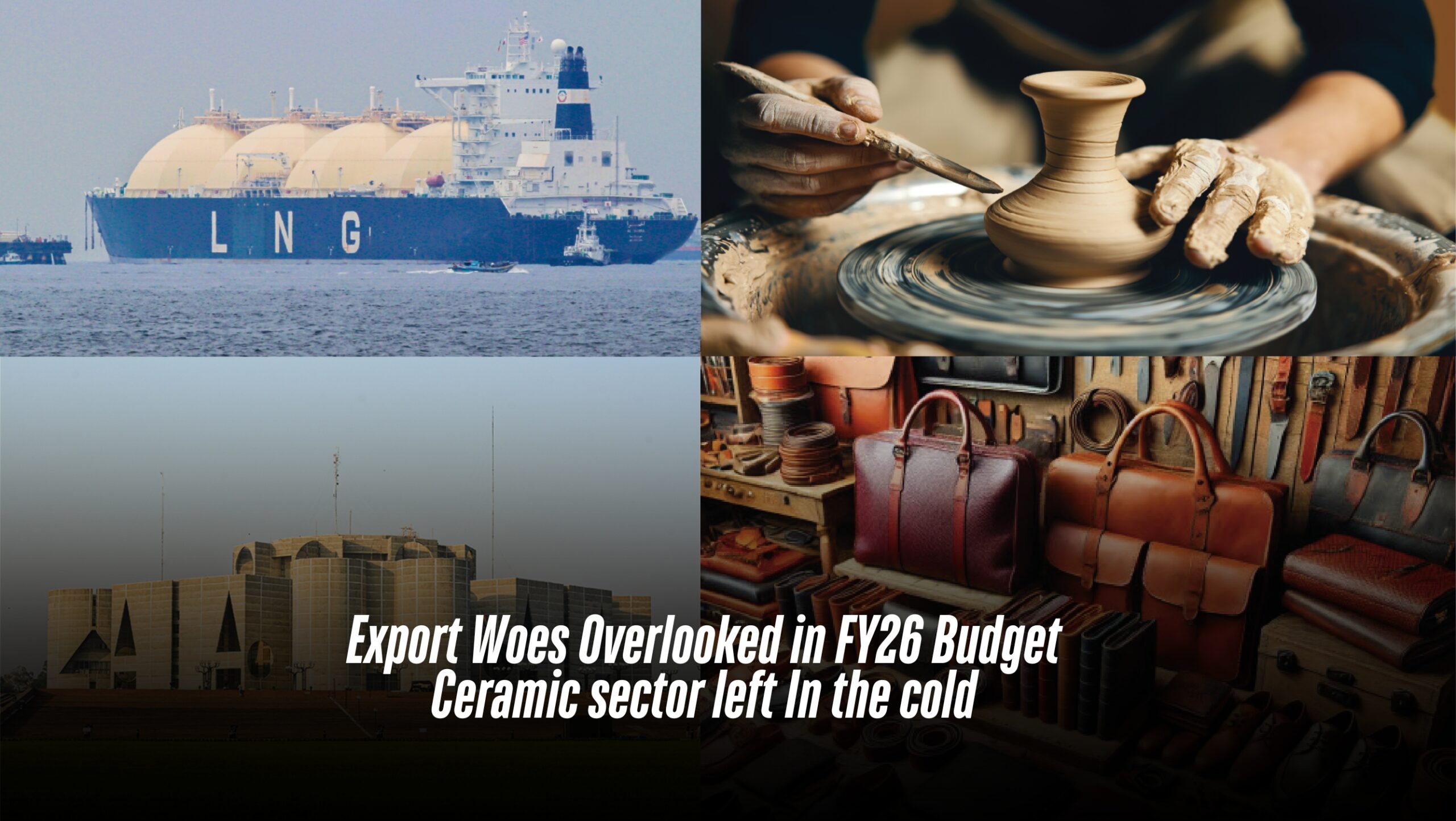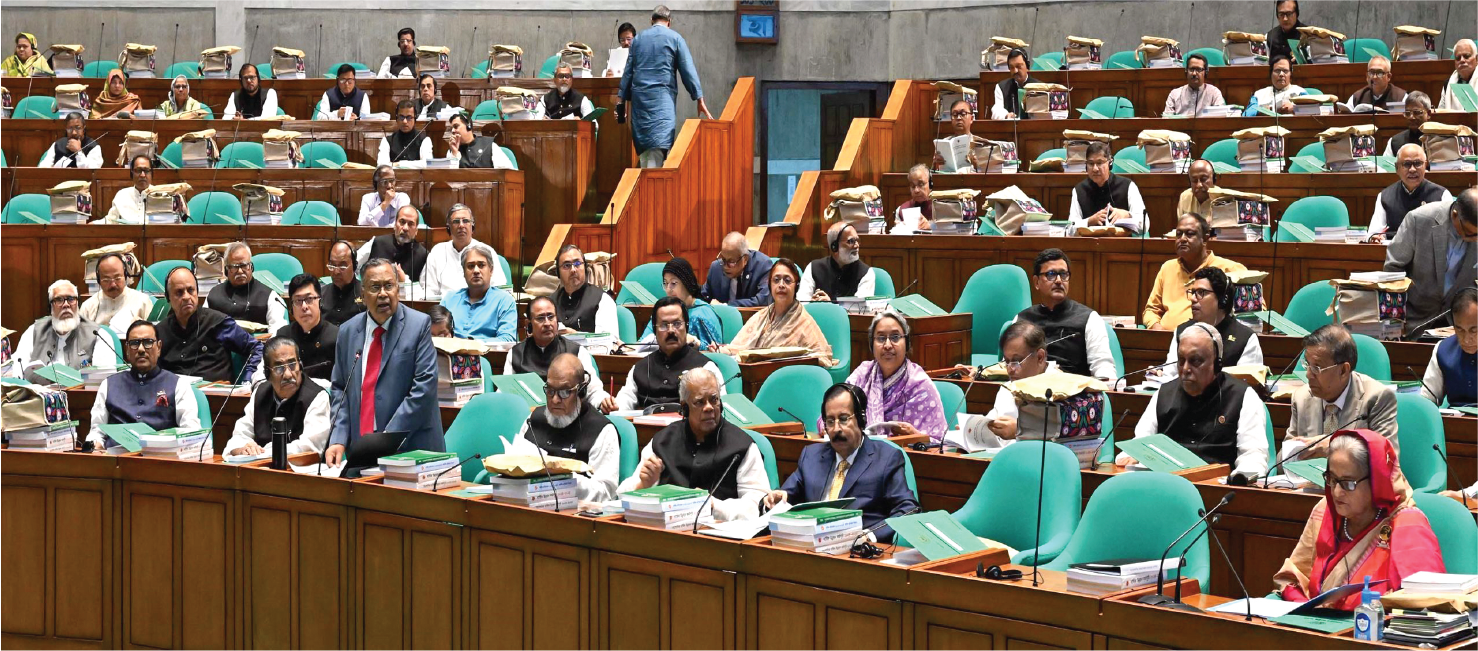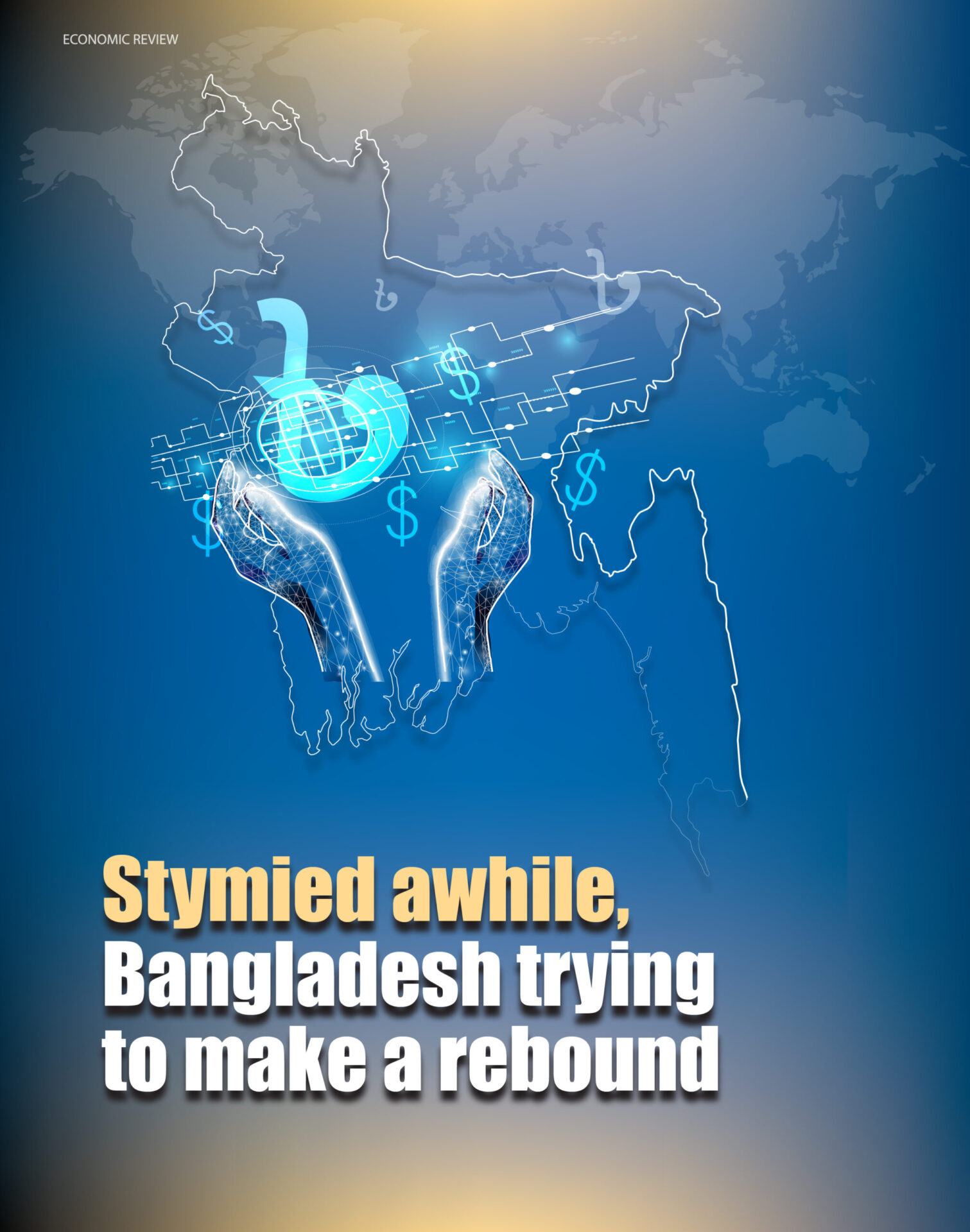
Bangladesh, one of the fastest-growing economies globally, had outperformed its South Asian peers and many developed economies until the outbreak of the Covid pandemic in 2020. It has been trying to be back on track after a downturn. Overcoming difficulties, Bangladesh has been able to perform better on some fronts. Needless to say, its macro-economy is standing on a strong footing and relatively stronger.

In such a context, finance minister AHM Mustafa Kamal has recently hailed the International Monetary Fund’s (IMF’s) decision to approve a $4.7-billion loan programme to help protect foreign exchange reserves.
Bangladesh has to import consumables such as food grains, sugar, edible oil, spices, and raw materials for ceramic industry and other manufacturing sectors, petroleum products, fertilizer, cotton, yarn, chemicals, machineries etc. But prices of essential commodities shot up along with disruptions to the supply chain following the Russian invasion of Ukraine since 24 February 2022.
Against this backdrop, trade experts and sector insiders blame the country’s overreliance on imports for its recent f inancial crisis. Poor or no production of raw materials and goods locally is also putting a strain on its foreign exchange reserves.
The country’s current account deficit had further widened in October 2022 as imports continued to surge compared to the combined receipts from exports and remittances, analysts said, adding that the main reason behind this surge is the yawning trade gap. According to the central bank data, the current account climbed to $4.5 billion in deficit as of the end of October last year against a deficit of $3.83 billion in 2021. As stated by bankers a few months ago, the pressure on foreign exchange is still there because of the payment obligations against the letters of credit (L/Cs).
The global market is currently seeing an unusual movement in the prices of various commodities due to the prolonged Russia-Ukraine war. From fuel to daily essentials, industrial raw materials and machinery, Bangladesh has experienced hyper inflation in its internal market. Figuratively speaking, the fuel price hike is truly fuelling the inflationary pressure. Things have got this bad as the prices of natural gas and electricity along with daily commodities hiked further after the IMF had attached strings with its $4.7-billion loan package.
However, businesses believe that the IFM loan will give some relief to the economy, but economic anatomists, experts and businesses warn that the country’s problems will not be solved so easily due to pressure on balance of payments (BoP). Bangladesh has seen sizable growth in exports unlike that in remittance flow but it has seen a major shortage in the supply of foreign currency, especially US dollar, because of the abnormally high growth in imports.
There are six sources of foreign exchange earnings for Bangladesh: Exports, Remittance, Foreign Direct Investment, Tourism, Investment income abroad and Foreign loans or grants. But none of the first four are strong, rather in declining mode. Despite huge money laundering abroad, the central bank is yet to open the door for investment there. In this situation, Bangladesh is becoming more dependent on foreign loans for mega development projects. But there are not enough sources of foreign exchange earnings to pay off import bills and foreign debt. Apparently falling into the middle income trap, this crisis may become dire and the exchange rate may have to fall frequently to manage the crisis. As a result, inflation may become more f lagrant.
Potential, Yet Troubled Ceramic Industry With increased urbanization and infrastructural development over the years, the ceramic industry is recognised as fast-growing as demand for ceramic products continues to mount. Overcoming many obstacles, more than 70 ceramic (tableware, tiles and sanitaryware) units have been set up in the country for exports and imports substitution with a local and foreign investment of Tk 150 billion. However, an erratic rise in gas prices has become a major problem in this gas-dependent industry.
The ceramic sector is a highly potential labour-intensive industry. Since machinery, technology and raw materials (most of which are natural minerals) are not available in the country, the local industry has to compete in both domestic and international markets with the countries, which are rich in raw materials and technology, in selling imported products. As the competing countries have their own machinery, technology and raw materials, they enjoy comparative advantage. It is thus necessary for the home-grown traders to stay buoyant locally and globally by reducing additional expenses. The average cost of production of ceramic products has increased between Tk 5.0 and Tk 7.0 per kilogram. Recently, the government increased the price of natural gas by an average of 150 per cent, and the production of such products has increased by Tk 7.0 to Tk 10 per kilogram for increased gas prices.
Balance of Payment Financial experts say macroeconomic shock was not only due only to the war. In fact, the fiscal year 2021-22 witnessed abnormal growth in imports, triggering the highest trade deficit in the country’s history. The balance of payments (BoP) has remained negative in the first half of the current fiscal year, depicting a plethora of challenges Bangladesh is facing in protecting its foreign-currency reserves from depletion as fund outflows exceed inflows.
Inflation Experts believe real inflation may be higher than the estimated one, maybe in a range of 12-14 per cent. However, the Bangladesh Bureau of Statistics (BBS) revealed that inflation was estimated at 8.57 per cent in January 2023 while it was 8.71 per cent in December 2022. Inflation will not go down if the dearth of dollars stays. What Bangladesh needs to do is provide the market with adequate supply, otherwise price hikes will continue.
Remittance The finance ministry very recently raised the incentive on the remittance exchange rate to 2.5 per cent from the previous 2.0 per cent as money transfers from remitters abroad saw a 21-per cent year-on-year fall in the July-November period. To stop illegal hundi transactions, the government first increased the cash incentive to 2.0 per cent, then to 2.5 per cent. But transactions through hundi have not stopped. Stabilising the dollar market can be a solution to this problem. The difference between curb market and bank dollar prices should be narrowed down. As long as this difference persists, the hundi culture will not stop.
Dollar crisis Experts observed that Bangladesh Bank has been trying to artificially stabilise the exchange rate for the past few years, but it has not proved feasible so far. This also experienced an increasing crisis in the economy. The country witnessed a major adjustment in the exchange rate of the dollar in a very short time. The Dhaka Chamber of Commerce and Industry (DCCI) has recently urged the regulatory bank to deliver support to commercial banks with adequate foreign exchange supply to help them settle LCs with an eye to ensuring the continuous supply of essential commodities during the holy month of Ramadan.
Fuel crisis Europe is most at risk for energy, especially the countries dependent on Russian gas. The International Energy Agency Fund in a recent report has said that Europe will suffer from gas crisis in 2023. If there is more winter, it warns, the crisis will increase. Although European countries have increased their intake of fuel from Norway, Qatar and Oman, it is not sufficient enough to last longer. And if China enters the economy with full power, then the demand for energy will increase and the resultant rise in price as well. So, Bangladesh will have to continue buying energy with increased prices.

Md. Mazadul Hoque, an economic analyst, told the ‘Ceramic Bangladesh’ that the previous record suggested that Bangladesh could not fulfill the IMF’s requirements fully. The suggestions coming from the global lender help the world’s least-developed countries in becoming prosperous economically.
As Bangladesh aspires to become a higher-middle-income country very soon, according to Mr. Hoque, there is no alternative to reform in its economic policies. Bangladesh may not be able to benefit from the $4.7-billion loan package to a great extent, the expert said, adding that it will be benefited much if economic reforms on a massive scale are done in light of the IMF prescriptions.
DCCI president Barrister Md. Sameer Sattar said energy prices are increasing due to a global economic crisis and energy shortage. It should not be a ‘one-way street’ and when energy prices come down in the international market, it should be adjusted in Bangladesh as well and without delay.
About employment and job cuts, he said the country is also part of this global volatility. But, for 2023, both employers and employees should be happy should they be able to keep businesses afloat by retaining the existing manpower.
Some two million new entrants are added to the job market every year but it is difficult to accommodate them all with suitable jobs, the DCCI chief said, adding that many will get jobs but a big portion of the rest may be more inclined towards becoming entrepreneurs.
Nowadays, young entrepreneurs are innovative in terms of technological know-how. To support the start-ups and sustain the CMSME sector in this global volatile market, access to finance is important, he said, adding that they should have easy access to finance with minimum onerous conditions.
On the gas price hike, the DCCI chief said that businessmen might be willing to pay a higher price but, in return, they want uninterrupted gas supply to continue industrial production. But it is equally true that higher gas-power price hike will have an adverse impact on small businesses, he pointed out. There is no ‘overnight’ solution to increase foreign exchange reserves, according to the DCCI president, as he said “Our country has to incentivise more remittance inflow and enhance export earnings to boost forex reserves.”

The current situation demands complete withdrawal of supplementary duty levied at the manufacturing stage of domestic tiles and sanitary ware, adjustment of water and moisture in the import of raw materials, increase in minimum tariff value to prevent duty evasion done through under-invoicing in the import of finished ceramic products, provision of partial bond facilities to the ceramic sector for reduction in import duty on raw materials and other components, amendment to value-added tax and income tax laws and reduction in production costs of exportable.
The Bangladesh Ceramic Manufacturers and Exporters Association (BCMEA) president, Md. Shirajul Islam Mollah, urged the government to withdraw supplementary duty fully from the manufacturing stage of domestic tiles and sanitaryware for protecting the domestic ceramic industry. He also made a plea for providing partial bond facilities to the prospective ceramic enterprises and called for cuts in import duty on raw materials, amendment to value-added tax and income tax laws and a reduction in production costs of diversified ceramic export items.



